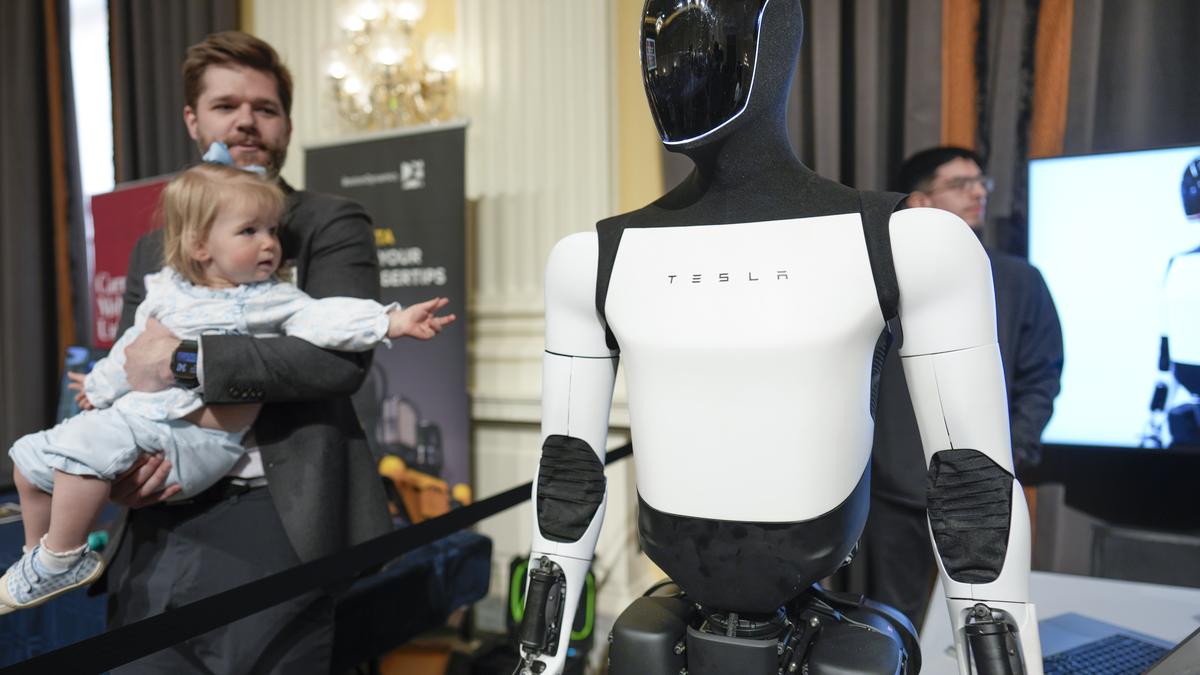
US robotics companies push for national strategy to compete with China
The Hindu
American robotics companies are pushing for a national robotics strategy, including a central government robotics office.
American robotics companies are pushing for a national robotics strategy, including establishing a federal office focused on promoting the industry at a time when China is making intelligent robots a national priority.
Representatives of companies — including Tesla, Boston Dynamics and Agility Robotics — on Wednesday met with lawmakers on Capitol Hill to show off products and push for the United States to adopt policies that would boost American companies in a global race to develop the next generation of robots.
Jeff Cardenas, co-founder and CEO of humanoid startup Apptronik, of Austin, Texas, pointed out to lawmakers that it was American carmaker General Motors that deployed the first industrial robot at a New Jersey assembly plant in 1961. But the U.S. then ceded its early lead to Japan, which remains a powerhouse of industrial robotics, along with Europe.
The next robotics race will be powered by artificial intelligence and will be “anybody’s to win,” Cardenas said in an interview after the closed-door meeting. “I think the U.S. has a great chance of winning. We’re leading in AI, and I think we’re building some of the best robots in the world. But we need a national strategy if we’re going to continue to build and stay ahead.”
The Association for Advanced Automation said a national strategy would help U.S. companies scale production and drive the adoption of robots as the “physical manifestation” of AI. The group made it clear that China and several other countries already have a plan in place.
Without that leadership, "the U.S. will not only lose the robotics race but also the AI race,” the association said in a statement.
The group also suggested tax incentives to help drive adoption, along with federally-funded training programs and funding for both academic research and commercial innovation. A new federal robotics office, the association argued, is necessary partly because of “the increasing global competition in the space” as well as the “growing sophistication” of the technology.

 Run 3 Space | Play Space Running Game
Run 3 Space | Play Space Running Game Traffic Jam 3D | Online Racing Game
Traffic Jam 3D | Online Racing Game Duck Hunt | Play Old Classic Game
Duck Hunt | Play Old Classic Game











